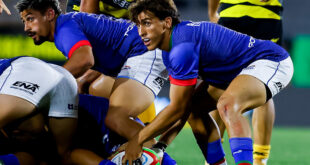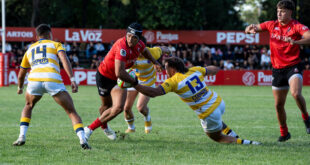The World Rugby Executive Committee has approved the immediate establishment of a working group to review Regulation 8. It is what determines player eligibility for international duty.
- Country of Birth
- Country in which one or both parents were born.
- Country in which one or more grandparents were born.
- 36 consecutive months of residency immediately preceding time of playing first test match.
At last year’s Rugby World Cup nineteen of the twenty countries had foreign born players. The one exception was Argentina. Georgia, South Africa and Uruguay had only one each while some others had many more. Some of the countries with the highest number were Australia, Ireland, Scotland and Wales, teams involved in the Quarter Finals.
The two most concerning methods of eligibility were grandparent and and residency. Few countries actually utilized the grandparent law. Those who benefited from it were established global powers. Eleven of the thirteen players qualifying through a grandparent were playing for England, Ireland, Italy, Scotland and Wales.
Residency qualification raised controversy. There were players who had been targeted and nationalized. Rory Kockott, WP Nel, Jared Payne Henry Speight, Josh Strauss and Samuela Vunisa were all cases in point. Strauss only become eligible for Scotland just one week before the World Cup.
The policy has continued since the World Cup with more and more players being capped under the 3-year residency law. CJ Stander and Quinn Roux for Ireland, Sefanaia Naivalu for Australia, Braam Steyn and Dries van Schalkwyk for Italy are just a few examples. Another is Nathan Hughes, a Fijian set to play for England after three years in the Premiership for Wasps.
Such behavior from leading unions has resulted in criticism of the laws. World Rugby’s vice-chairman Agustín Pichot is on record as saying this cannot continue. An extension to five years is expected to be recommended.
 Americas Rugby News Rugby news from across the Americas!
Americas Rugby News Rugby news from across the Americas!




